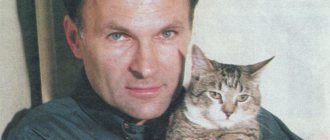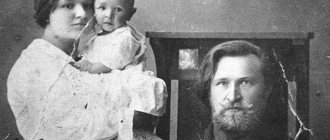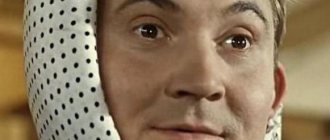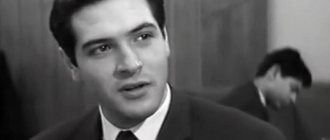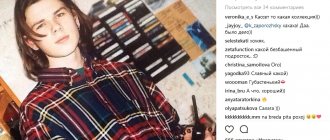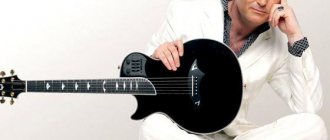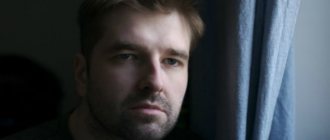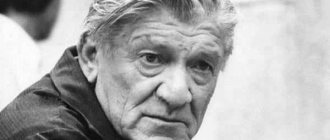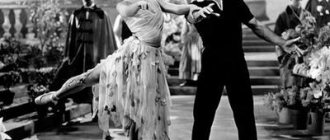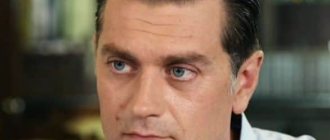Robert Hossein: biography, photo, early years
Robert's real name is Abraham Huseynov. His father, Aminolla Huseynov, was from Samarkand. In 1922, he went to Berlin to receive medical education, but his love for music won, and Aminola became a composer. Robert's father settled in France, changing his name to Andre Hossein. His son was born to actress Anna Minkovskaya, who lived in St. Petersburg for a long time before emigrating.
Thus, Robert Hossein, whose biography is practically unknown to the Russian audience, is directly related to Russian culture. His mother always spoke to him in Russian. Therefore, when Russian journalists interview a French actor, he tries to speak Russian.
From the age of 15, the boy, following the example of his mother, attended classes in a theater studio. Then he graduated from Rene Simon's acting courses and unexpectedly found himself in demand both in cinema and in the theater.
Robert Hossein was born on December 30, 1927 in Paris, in the family of musician and composer Andre Hossein (Aminuly Husseynov) - a native of Samarkand and Anna Mnevskaya, of Jewish origin and originally from Kiev, whose family left Russia after the October Revolution of 1917. Together the couple settled in Paris. During his childhood, Robert had to change several boarding schools. Parents did not have enough money to pay tuition fees at a regular school. The boy stubbornly skipped many classes, he did not make friends, he loved to sit on a tree and watch the life of the street, and already at that time he dreamed of the stage.
At the age of 19, Robert began to comprehend dramatic art, graduated from the famous courses of Rene Simon, and came to the Grand Guignol theater. Here young Hossein gained not only acting, but also directing experience. Robert first appeared on screen in 1948, but viewers and critics paid attention to him only in 1954 and for a long time was considered a bearer of negative charm. This was facilitated by Hossein’s playing style and appearance - a broad-shouldered hulk with large facial features and a heavy gaze of deep-set dark eyes. Robert often played dangerous types, characters with a “double bottom,” criminals, and even just outright sadists like Peter Kurten, the hero of the criminal-psychological drama “The Vampire from Dusseldorf” directed by Hossein. Even after becoming a director, he did not reserve positive roles for himself; it seems that he liked to try on demonic masks in both theater and cinema.
A year after his screen debut, in 1955, Robert married Marina Vladi. “When I first saw Marina, she was just a child,” Hossein recalls. “I knew her older sisters well: I respected the intelligence and tact of Olga Baidarova-Polyakova, was friends with Hélène Vallier, played in the Old Dovecote theater with Odile Versoix... I first saw Marina on stage - as a ballerina at the Paris Opera.” White, pink, sharp on the tongue! By the age of fifteen she became very beautiful! I was ten years older, but in front of her I was timid like a boy. My dressing room at the theater was full of her photographs. I was ready to do anything to get her attention. I offered Marina the main role in my first independent film based on the play by my friend Frederic Dar. "Scoundrels go to hell." It was an undoubted success, and then Georges Lampin invited us to star in Crime and Punishment. Marina played Sonechka Marmeladova, renamed Lily in the French manner, and I played Raskolnikov...”
From left to right - Helen, Marina and Olga, 1956
Marina Vladi was Ossein's first wife, the mother of his two sons - Igor and Peter. She starred in several of her husband’s films - “Forgive Our Sins” (1956), “You Are Poison” (1958), “Night of the Spies” (1959). Both origins and proximity to the Polyakov family are the reason for Hossein’s constant interest in the history and culture of Russia. A long friendship connected him with Roger Vadim (Plemyannikov), who also had Russian roots...” By and large, I never stopped considering myself an emigrant in France...” Robert once admitted, and added, “I am tormented by nostalgia for a large space — through the vast snow-covered steppe, through endless forests without the carefully paved roads familiar in Europe.” In a conversation with Eldar Ryazanov, as part of a TV show from the “Parisian Secrets” series, the famous Frenchman spoke about his gastronomic preferences - “rye bread and pickles are my favorite delicacy.”
Our viewer saw Robert Hossein in the films “The Verdict” and “The Second Truth”; both films, for all their good quality, did not find a wide response among the Soviet public. With the release of a fascinating melodrama about the adventures of the beautiful Angelica (by the way, the authors of the novel that served as the basis for the script of this film series are also Russian), the actor playing the Count de Peyrac overnight became one of the most beloved French actors in the USSR.
The slightly crippled, but incredibly attractive Geoffrey de Peyrac broke some of the monotony of Hossein's negative characters. An aristocrat in spirit, and not by origin, a freethinker and traveler, an alchemist scientist and poet, a connoisseur of art and a connoisseur of the female heart, a man living with thoughts and passions, falling out of the era, a victim of envy and deceit, an exile who miraculously escaped execution - the only one who worthy of the love and loyalty of the beautiful Angelica. If cinema did not exist, it would have to be invented for the sake of "Angelique", for the sake of Geoffrey de Peyrac.
Today, the actor has more than 80 films to his name, and Ossein directed a dozen films as a director. And yet, in France he is considered, first of all, a man of the stage. From 1970 to 1979, he headed the National People's Theater in Reims. Reviving the traditions of the Grand Guignol, Hossein, the director, entertained the viewer with stories from Edgar Allan Poe, made performances about the heroes of the Resistance, and turned to Shakespeare and Dostoevsky. In 1985 he staged Julius Caesar. Then there were productions - “The Case of the Lyon Courier”, “Danton and Robespierre”, “Les Miserables”, “Notre Dame Cathedral”, “A Man Called Jesus”. For his love of large-scale theater, the scope of crowd scenes, with the use of impressive scenery, critics have repeatedly called Hossein a giant and a show-off. “Too many gestures in public.” However, another wing of modern theater experts awarded Robert the honorary title of People's Director of the Republic. At Hossein's performances they cry and burst into laughter... His actors are not applauded - they are applauded. Five minutes, ten, forty!.. Standing!.. You need to know that the Parisian theater audience is very stingy with such applause. There were cases when Hossein invited actors he accidentally saw and liked into his project, despite the fact that the theater agencies financing the productions refused to exceed budgets and pay for the work of unknown debutants. In such situations, Robert took risks, without thinking twice, took on protégés in whose talent he believed, using his own budget. The risk, more often than not, paid off: the newcomers added freshness to Hossein’s productions, and sometimes became prominent figures in the national theater and cinema. This is exactly what happened with Isabelle Adjani and Jacques Weber, Richard Anconina and Francis Huster (another Russian among the French actors). Superstars also work with Hossein - Jean Paul Belmondo - Robert's partner in two films, at the De Paris Theater he played in his plays "Kean" and "Cyrano de Bergerac". As for newcomers, Robert Hossein can afford to be a good Samaritan. He knows that he has the gift of King Midas to turn into wealth everything his hand touches. What's the matter? In skillfully promoted advertising, in the unconditional talent and temperament of the artist, in luck, or in everything at once?
The ideas of Hossein's performances reach the audience through long, sometimes fierce debates that arise right there in the theater. In discussions between critics and directors, and often representatives of political parties, churches, public organizations on the topics of Justice and Mercy, Human Rights and Violence, Poverty and Faith, raised in Hossein’s productions. Recently, the famous actor and director became the artistic director of the Marigny Theater, whose owner is one of the largest French patrons of the arts, Francois Pinault. The owner of the chain of stores "Fnak" and "Printam", a major businessman and patron of modern painting, Pino is now playing a new role for himself - a producer of theatrical art.
In Paris, on the stage of the renovated Palais des Congrès, the premiere of their common project-play “1940-1945, de Gaulle, the one who said no” recently took place, as always with Hossein the director - this is a large-scale, expensive performance, in the creation of which two hundred actors participate and three hundred technical personnel. The performance attracts a full audience, because everything connected with the personality and activities of Charles de Gaulle is of particular interest to the French. Writers, theater directors and filmmakers are and will continue to return to this major political figure, who played a huge role in the historical fate of the country.
In today's sedate and respectable Robert Hossein, it is difficult to recognize Geoffrey de Peyrac - the years go by. The theater takes a lot of effort and time, Robert does not often appear on the silver screen. He has already written two books of memoirs, “The Blind Sentinel” and “Nomads Without Tribes.” Lives with his third wife, actress Candice Patu. He thinks about Russia and dreams of staging “War and Peace.”
based on materials from the network...
Beginning of theater and acting career
Robert Hossein, whose biography and fate was very successful, performed on the Grand Guignol stage for a long time. This was the name of the unique Parisian horror theater. It was there that Robert first tried himself as a director.
In 1956, director Georges Lampin cast Hossein in the lead role in the French film version of Dostoevsky's Crime and Punishment. Since then, things have gone uphill for Robert: he played leading roles in a myriad of films - “Beware, Girls”, “Freedom Under Surveillance”, “You Are Poison”, “Night of the Spies”, etc. His on-screen partner in For a long time there was actress Marina Vladi, who was also Hossein's first wife.
However, it was not enough for Robert to simply play his roles. Back in 1955, he began writing scripts and in the same year he directed his first film, Scoundrels Go to Hell. In total, Hossein directed ten films.
——Robert Hossein and Marina Vladi. . .
The famous French actor Robert Hossein is known to us as Count Geoffrey de Peyrac, a handsome lame man and Angelique’s husband from the blockbuster of the same name in the 70s.
But few people know that he is also the first husband of the movie star Marina Vladi, and finally, that he comes from a modest family of Russian immigrants of the first wave. Robert talks about himself: “I consider myself Russian, although I have a lot of different blood mixed in me. My father Andre Hossein was born in Samarkand, although he is Azerbaijani by nationality, and was a very talented person. The parents spoke only Russian among themselves. “In the first years of his life, Robert knew almost not a word of French - after all, the family spoke only Russian.
This is how Ossein talks about his parents: “My father, a talented musician, was sent to study in Moscow. There he converted to Orthodoxy and became Andrey. A violinist and composer, he went to complete his education at the Berlin Conservatory, where the First World War found him. Parisian emigration began, my father had to play in taverns. The only person who believed in my father’s genius was my mother.” Ossein’s mother, Anna Minevskaya, was born in Kyiv and raised in St. Petersburg. Her family left St. Petersburg after the October Revolution of 1917. In Germany, where they ended up, Anna Minevskaya met her future husband. Robert says: “My father worked part-time in a photo workshop, where my future mother once came to take photographic portraits. They fell in love with each other at first sight. Dad dropped out of school, and they decided to move to France, where I was subsequently born - in the poor Parisian Hotel de Narmes. The young family was barely making ends meet. They lived in two tiny rooms in the attic. The restroom and bathroom were located on the second floor, so the emigrants had to climb several flights of stairs to get to them. The famous French actor says: “Mom did her best to prepare food for us, darning and mending her old clothes for the hundredth time. We never had money. We were never full. And it was always cold in the damp, dimly lit rooms. “At the age of 15, he was forced to leave his studies and go to work in order to somehow help his family make ends meet... At the age of 19, Robert began to comprehend dramatic art, completed the famous courses of Rene Simon, and came to the Grand Guignol theater . Here young Hossein gained not only acting, but also directing experience.
Ossein saw his future wife, Marina Polyakova-Baidarova (better known under the pseudonym Marina Vladi), when she was 11 years old.
Robert: “We met thanks to my friend actress Odile Versoix. Odile once asked me to go with her for company to visit one large friendly house.....where I live a lovely Russian family, the Polyakovs. Odile assured that it would be fun. The Polyakovs are wonderful people... Well, I went.” Robert talks about Marina: “She looked like an angel! Golden curls, radiant eyes, pale skin! So fragile, emotional, tender! ….sharp on the tongue!”….
Their next meeting took place many years later, he saw her again and fell madly in love, despite the ten-year age difference. Odile Versoix asked to leave some tickets for his performance for her sisters. After the performance, the Polyakovs “fluttered” into his dressing room - and he saw Marina and……. gone!
She grew up and blossomed, becoming a real beauty. When the girls left, his colleague, who was removing her makeup behind a nearby mirror, casually said: “You know, you’re going to marry Marina.” - What are you doing? - Robert screamed. - She's only 16! - You'll see... Marina was 16 years old then, and Robert fell in love with her so much! I bought magazines with her photographs in the city and thought about how to conquer her.
He was completely enchanted, besotted by her. And she once said: “Stop trying to please me, Robert, you’re not my type at all. However, I have a proposal for you. To get me as your wife, you will have to scoop up the ocean with a teaspoon. That's when I'll tell you yes. He was not at a loss: “It will take a lot of time, but I will do it!”
But after that explanation, their romance began to develop rapidly. Marina had already turned 18... fortunately, the ocean did not have to be drained - Marina became the wife of Robert Hossein.
The year was 1956, director Georges Lampin invited Robert Hossein and Marina to star in the film “Crime and Punishment,” in which they decided to get married.
Robert says: “We didn’t film on the wedding day, but we came to the set in the morning to announce…..the happy news. Then they held hands and ran, laughing, through the entire Bois de Boulogne to sign their names. "
The couple settled with Marina in the large Polyakov-Baidarov house outside the city. The atmosphere there was like in a noble nest of the pre-revolutionary era - a house always full of visiting friends and relatives. Soon their two sons were born - Igor and Peter.
At that time, Robert Hossein and Marina Vlady were the most glamorous couple in France.
Robert Hossein: “We lived in the huge house of the Polyakovs - tea drinking at the samovar, conversations, games. The life of a large Russian noble family, which they moved to Paris. This way of life destroyed our family.” The rather withdrawn Hossein, who grew up in a completely different environment, was pressured by the need to be in society all the time, to do everything together. In his own words, it often seemed to him that he was married not to Marina alone, but to all four Polyakov-Baidarov sisters. Marina was very attached to her family and could not imagine life outside her father’s house. Robert Hossein: “Marina did not want to part with her habits, her sisters, her mother and the environment dear to her heart, and I had no idea that as a result I would find myself the only man in a large and friendly family of women!…….We were almost never alone, We didn’t have our secret, our world, our intimate space... And I began to feel extremely uncomfortable.”
Soon Marina left for the first time for a long time to film in Sweden, in the film “The Witch”. During this time, Robert never called or wrote her a single line. Mutual friends said that she was worried, sad, and this noticeably affected her acting work. The director allegedly shouted: “Call her husband, demand that he visit her! It’s drying before our eyes.”
When she returned, Marina said only one word to her: “Goodbye.”
Robert Hossein: “Then I collected my things, Marina volunteered to accompany me to the bridge, where friends were waiting, who agreed to shelter me for a while. They walked in silence. We said goodbye. I walked across the bridge. Having met with friends, I turned around - she was standing alone, so lonely and lost... Alas, there was no turning back.. “
“We parted painfully - even our two little sons could not keep us together. I will say one thing: I loved Marina very much. Did she love?
Ask her."
Filming in film adaptations by Bernard Borderie
No matter how good Robert Hossein is, his biography is successful largely thanks to the director Bernard Borderie. Borderie is known throughout the world for his screen masterpieces “The Three Musketeers. Milady's Revenge" and "The Three Musketeers. Queen's pendants." This man really knew how to make historical films and do it beautifully.
In the 60s, Borderie began filming the novels by Anne and Serge Golon, dedicated to the adventures of the magnificent Angelique at the court of Louis XIV. A total of five colorful films were planned, in which Robert Hossein was assigned the leading male role.
Geoffrey de Peyrac, performed by Hossein, fell in love with women all over the world. The actor managed to best play the role of the aristocratic hero who rebels against the hegemony of the capricious Louis. Louis sees the rich and wayward nobleman as a threat, so he burns him at the stake, making a ridiculous accusation of witchcraft. Many years later, it turns out that Peyrac survived and is now fighting Louis’s fleet at sea, taking the alias Rescator.
As you can see, the plot of the film is quite fascinating. A series of well-staged paintings about Angelique could not but bring universal recognition and respect to the artist.
Other film works
However, actor Robert Hossein is known not only for “Angelique”. The artist’s biography is associated with many worthy projects.
In 1967, Hossein directed the drama “I Killed Rasputin,” which takes place in Russia. In order for the script to accurately reflect historical events, in particular the death of Gregory, Hossein consulted with White Guard officers, of whom there are a great many in France due to the mass emigration of this layer of the population from the Russian Empire. The director gave himself one of the main roles - Sergei Sukhotin.
In the 70s, together with Charles Aznavour, Robert starred in the crime film “The Time of Wolves.” And, of course, we cannot fail to mention the role of the commissioner, which Hossein played in the action movie “The Professional.” This tape was extremely popular in Russia in the early 90s. One of the main roles in it was played by Jean-Paul Belmondo.
Robert Hossein: biography, personal life
Apparently Robert always felt involved in Russian culture, since even in his personal life he was drawn to women of East Slavic origin.
Robert Hossein, whose biography is no less interesting than his personal life, was married three times. For the first time, his chosen one was actress Marina Vladi, whose real name is Polyakova. In this marriage, the actor had two sons, who were named Igor and Peter.
For the second time, Robert again married a Russian woman - a certain Caroline Elyashev, whose father also came from the Russian Empire and in France found himself as a film producer. Caroline also gave birth to the actor's child.
The third chosen one, Candice Patou, gave Hossein a fourth son.
LiveInternetLiveInternet
Robert Hossein was born on December 30, 1927 in Paris into a musical family. His father, violinist and composer Andre Hossein (born Aminulla Husseynov, 1905-1983), of Azerbaijani (paternal) and Persian (maternal) origin, was from Samarkand. While studying in Moscow, Husseynov converted to Orthodoxy and changed his name to Andrey, and before the First World War he left for Germany, where he continued his studies at the Stuttgart and Berlin Conservatories, converting to Zoroastrianism. In Germany, he met the pianist and comedic theater actress Anna Minevskaya, of Jewish origin and originally from Kyiv, whose family left the Soviet Union after the October Revolution of 1917. Together the couple settled in Paris.
Thanks to his mother, Robert spoke Russian well since childhood. From the age of 15 he studied in the studio at the Old Dovecote Theater, then completed Rene Simon's courses and performed on stage.
He made his film debut in R. Cadenac’s film “Embankment of Blondes” (1954), and in 1955 he made his first film “Scoundrels Go to Hell”, offering the role to Marina Vladi, whom he married the same year.
Hossein played in many of his films: “Death of a Killer” (1963), “Circles Under the Eyes” (1964), “The Vampire from Düsseldorf”, where his life partner Marie-France Pisier starred, “Rope and Colt”, “Falling Point” "(1970). In 1967 he made the film “I Killed Rasputin”, with a fair amount of “cranberry”.
But Hossein had his greatest success in the role of Count of Toulouse Geoffrey de Peyrac in the five-part series by Bernard Borderie in the film adaptation of the novels by Anne and Serge Golon about Angelique. Where his partner was the French actress Michelle Mercier.
The couple Robert Hossein - Michel Mercier appeared on screen seven times: four times in "Angelique", and three more times in the films "The Second Truth", "Thunder from Heaven" and "Rope and Colt" ("Cemetery without Crosses").
In the film "Thunder from Heaven"
In the film "The Second Truth"
His first wife (1955-1959) was actress Marina Vladi, daughter of ballerina Militsa Evgenievna Envald and singer Vladimir Polyakov. They met when she was 15 years old. They lived for four years. He directed her in four films, which made Marina Vladi a recognized actress. At that time, Robert Hossein and Marina Vlady were the most glamorous couple in France.
From his marriage to Marina, he has two sons - Igor (lives in Haiti) and Peter (guitarist and balalaika player, lives in the south of France).
Hossein's second wife (for 15 years) is psychoanalyst and film scriptwriter Caroline Elyashev (born 1947), daughter of film producer of Russian-Jewish origin Anatol Elyashev (originally from Baku) and writer, feminist of Sephardic origin Francoise Giroux (1916-2003). He met Caroline, a 15-year-old girl. Parents did not do much with Caroline. She looked lost and told everyone that she wanted to become a psychiatrist. At rehearsals, he apologized and ran after his wife to pick her up from school. Locked her at home so she could do her homework. And she really became a famous psychiatrist!
In this marriage a son, Nicolas, was born. By the way, he also became an actor.
His third wife was Marie-France Pisier, with whom he himself starred in a number of films.
They did not live long. There were no children in this marriage.
Marie-France Pisier drowned in the swimming pool. The famous theater and film actress was 66 years old.
And while courting his fourth wife, Candice Patu, he offered a role in his film “Les Miserables” (1982). She gave birth to his fourth son, Julien. On the wedding day, Ossein was in a car accident and spent a month in the hospital. He was attended by Candice, an amazingly caring woman. When they finally got to City Hall to sign, Kandis was already nine months pregnant.
She and Candis Patu have been together for 32 years.
Today, the actor has more than 80 films to his name, and Ossein directed a dozen films as a director. And yet, in France he is considered, first of all, a man of the stage. From 1970 to 1979, he headed the National People's Theater in Reims.
In today's sedate and respectable Robert Hossein, it is difficult to recognize Geoffrey de Peyrac - the years go by.
The theater takes a lot of effort and time, Robert does not often appear on the silver screen. Already managed to write two books of memoirs “The Blind Sentinel” and “Nomads Without Tribes”
Robert Hossein with Michel Mercier (Angelique) and wife Candice Patou.
Here they are, our unforgettable Comte de Peyrac and Angelique - aged, but so beloved!
Materials are pulled from everywhere: https://eternaltown.com.ua/content/view/4736/2/ https://sobytiya.net.ua/archive,date-2008_06_16,art...ny_vladi_ya_lyubi/article.html and from many others.
I made posts:
My first post - The Unlucky Marquise of Angels (Michelle Mercier)
Michelle Mercier - she also sings!
Robert Hossein - Comte de Peyrac from "Angelique" the son of emigrants from Russia
Giuliano Gemma - performer of the role of Nicolas from "Angelica"
Jean-Claude Pascal actor from "Angelique" and Eurovision winner
Sami Frey - another actor from "Angelique"
